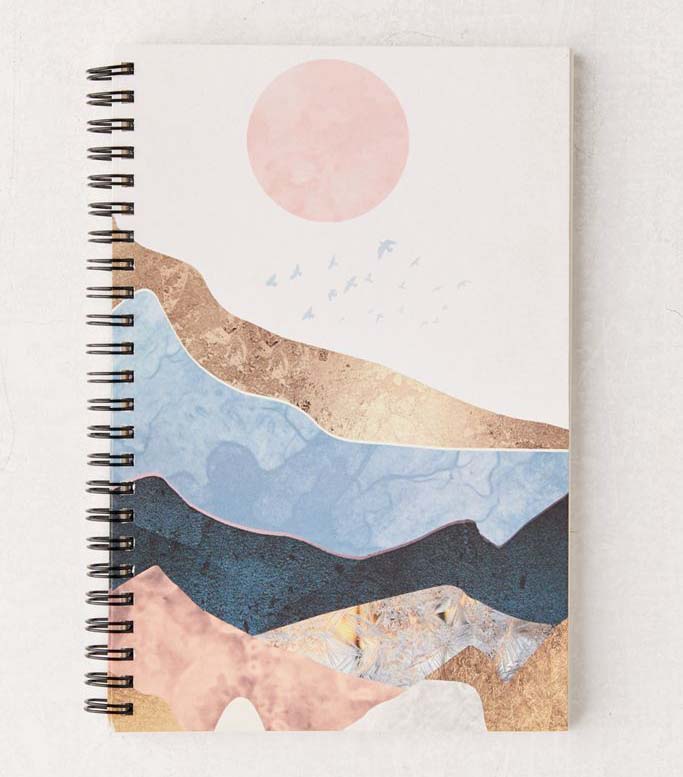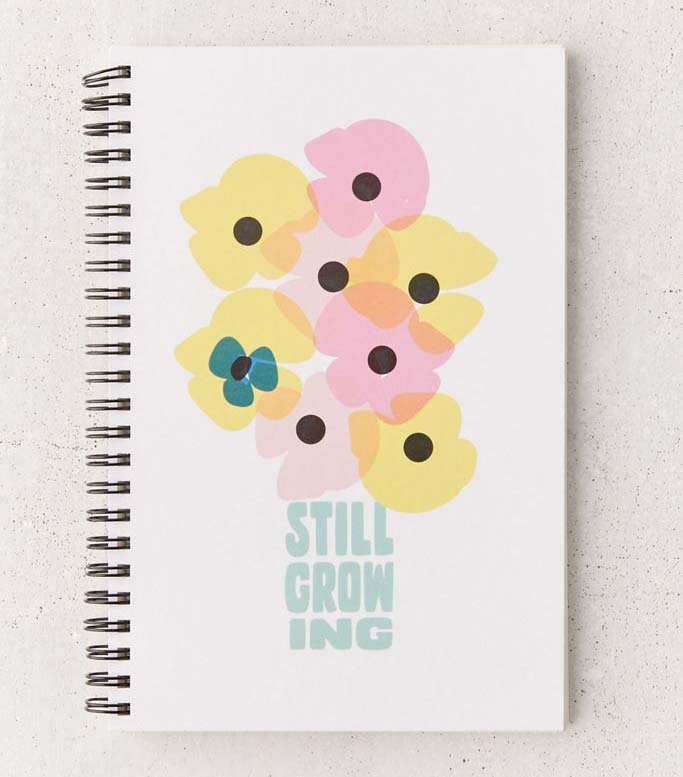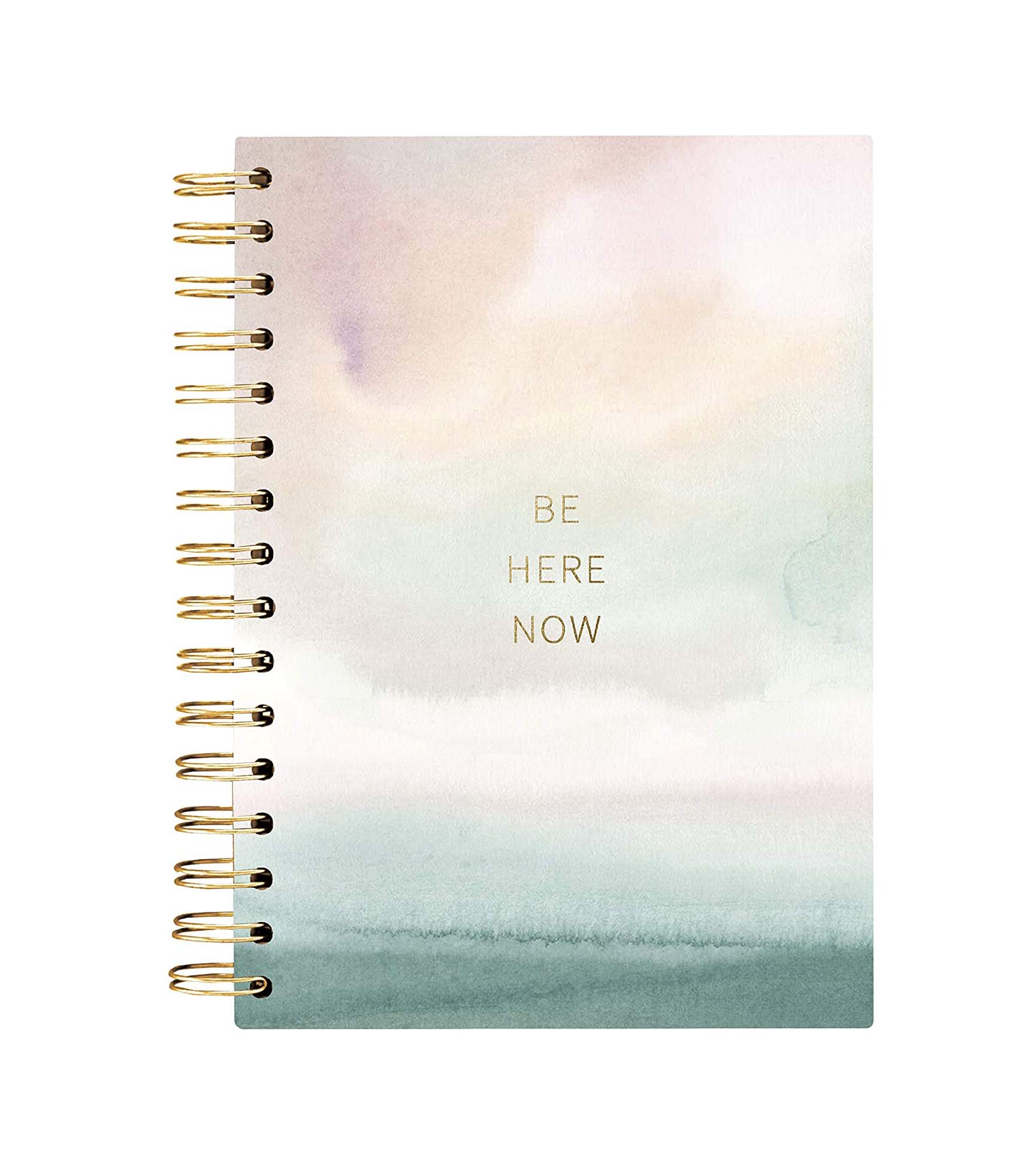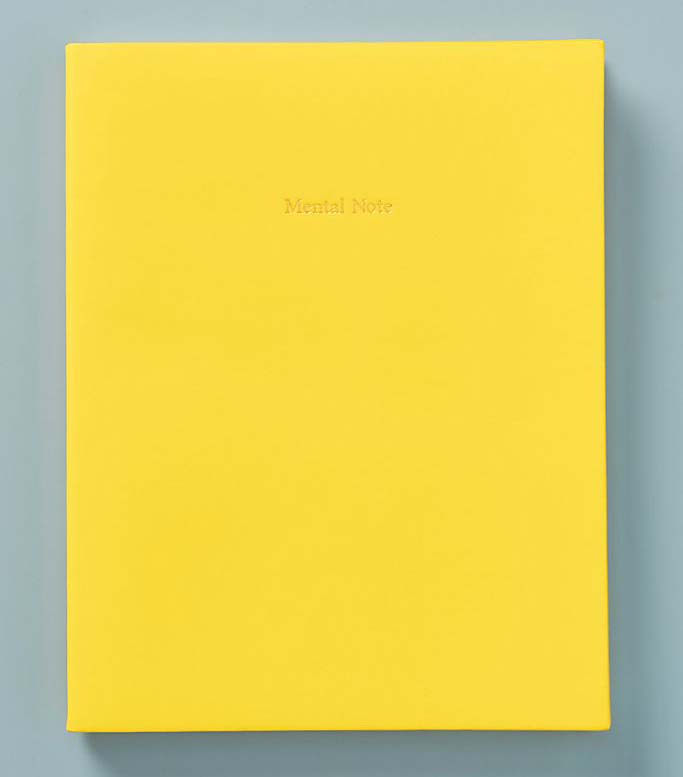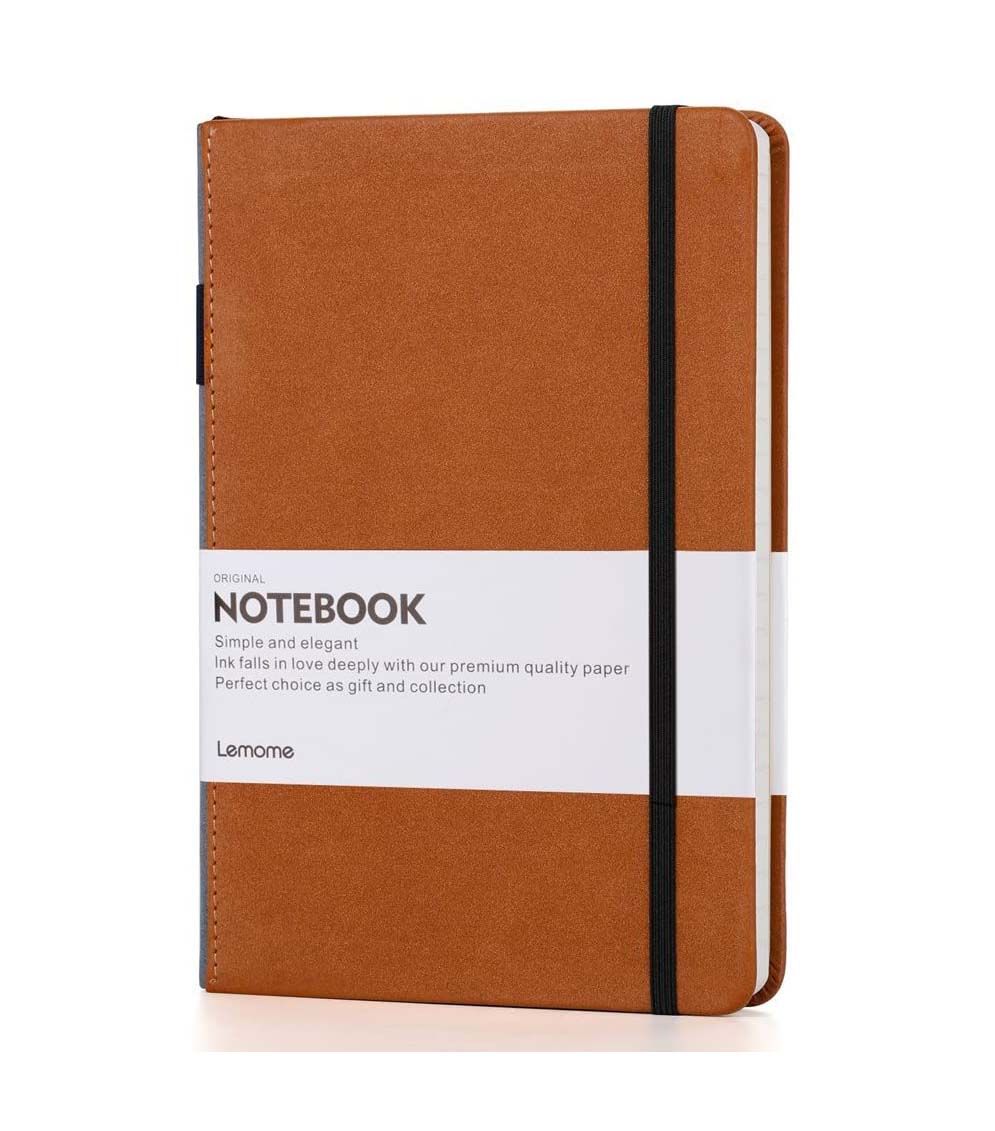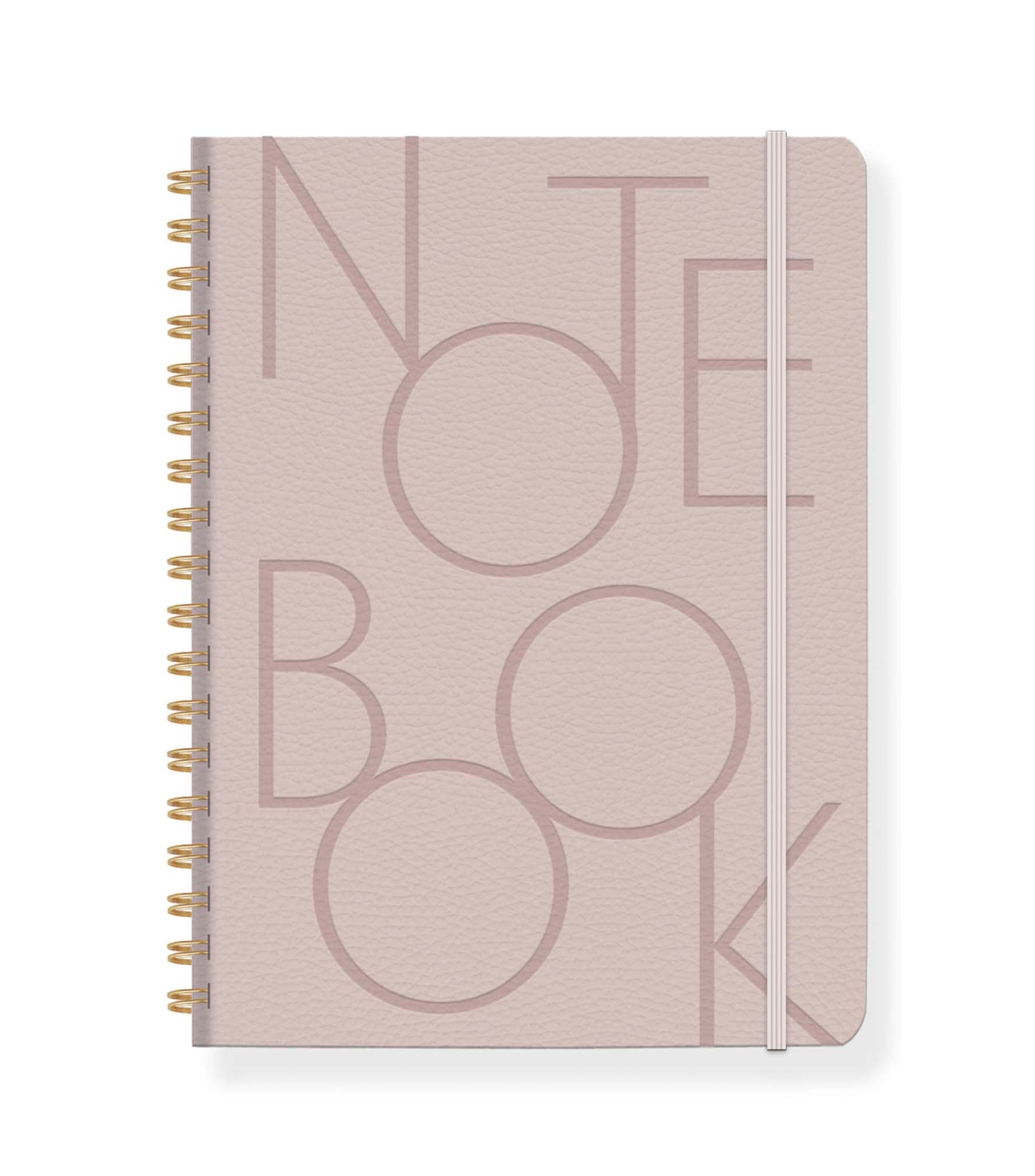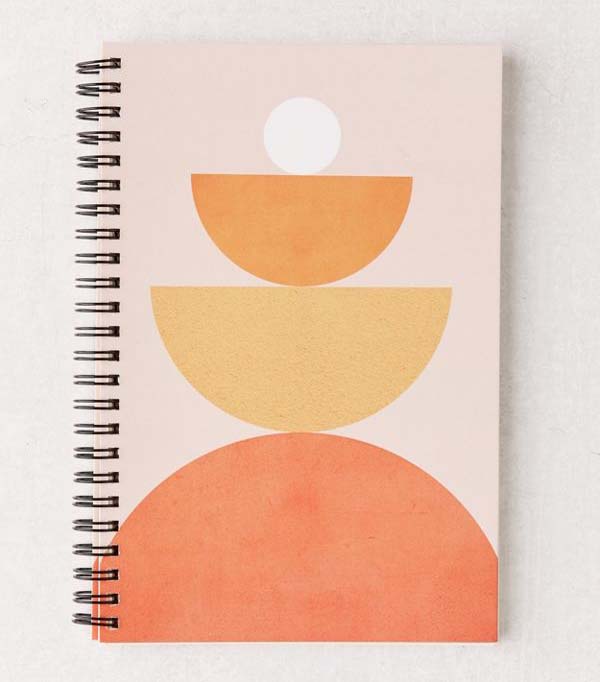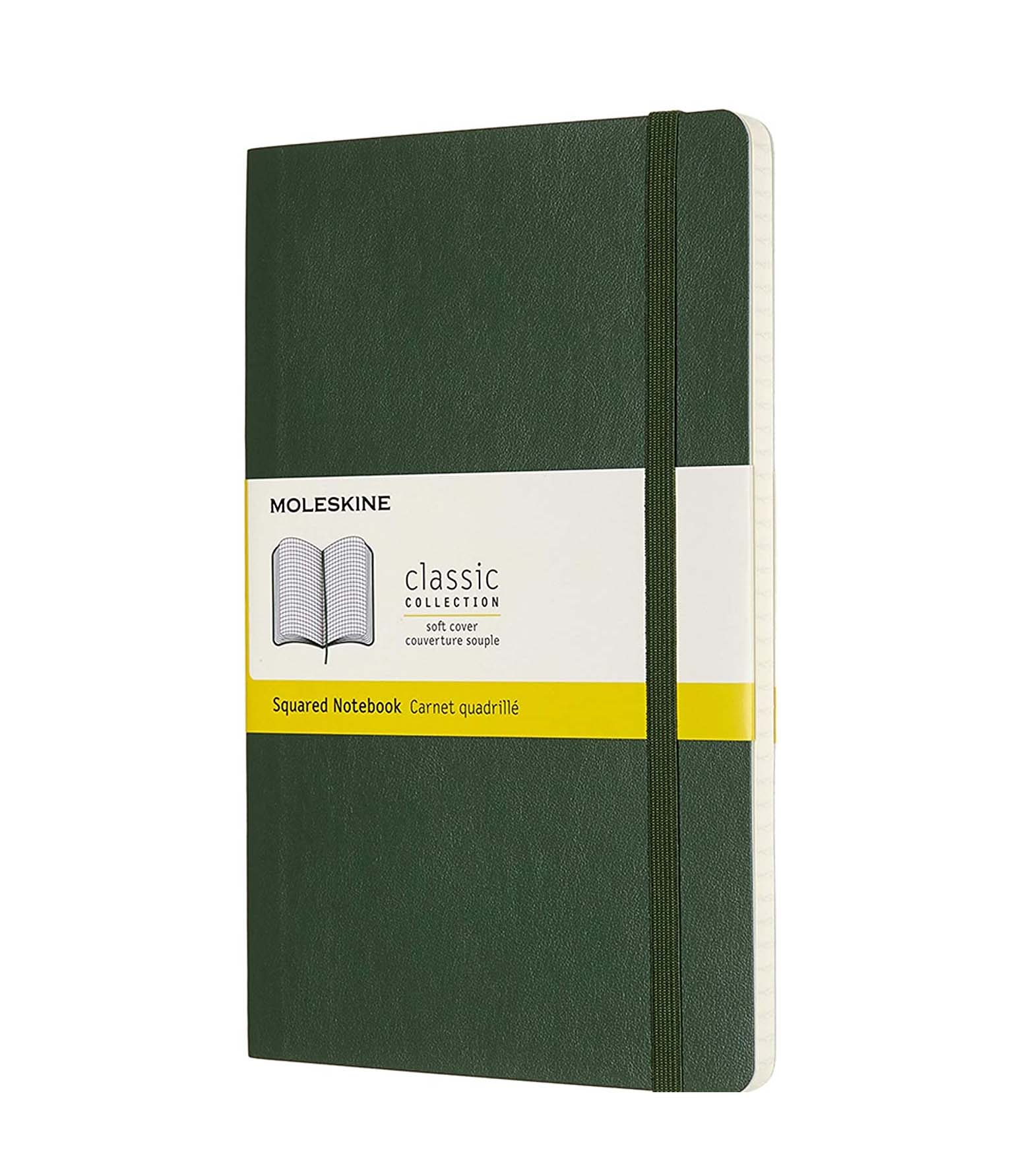5 Things to Remember If You Want to Start Journaling


It certainly bodes well for my profession that from a young age, writing has always been one of my most treasured outlets, a way to express thoughts and access corners of my imagination that otherwise seemed indeterminable. But there was a period of time fairly recently when suddenly this beloved ritual felt more like a chore. I had recently graduated college, thrown myself into my dream job, and was working incredibly long hours to churn out content at a breakneck pace. It was thrilling, to be sure, but I'd stagger home at the end of the day with the distinct sensation that my brain might liquefy at any moment. On these exhausted evenings, the last thing I wanted to do was pick up a pen and continue writing.
Without the catharsis of parsing through my thoughts, however, I suffered. Those months are a hazy blur in my memory, as I clicked into autopilot mode and lost any semblance of mindfulness. Meanwhile, my anxiety persisted until I felt on edge at every waking moment. I was prone to mood swings that were foreign and inexplicable. At a certain point, I realized I no longer recognized myself, so I took a certain editorial job in L.A., packed up my life in New York City, and moved across the country to start anew and get reacquainted.
Quickly, writing found me again. As I negotiated this new chapter in my life, I was determined to prioritize my mental health, and journaling became a form of therapy once more. It has since become a reflex: During those moments when I struggle to make sense of a gut emotion or simply feel too scattered to think straight, putting pen to paper gives me a sense of autonomy over it all—a far cry from those months when I felt completely unmoored. It's an exercise in perspective, as I can observe my thought process without judgment. If nothing else, it's a way to recalibrate and reorganize my brain. And while I still can't find the motivation to journal on my busiest days, I now know that I can—and will—return to it when I need it most.
"I encourage my patients to think about journaling as an activity they deserve, rather than something they ought to do," says Heather Silvestri, Ph.D., a New York City–based clinical psychologist. "Journaling is very similar to meditating in that there is no way to be 'bad' at it. These are not performative activities, and there really isn't any particular goal other than to be as present as possible. Knowing your own particular psychological process and feeling a sense of agency over your thoughts and feelings is something everyone can learn to do."
But as with any self-care ritual, getting started is often the most intimidating aspect of journaling. Below find some pointers to help you establish the habit—and learn more about how it might just change your perspective on everything.
1. Look at journaling as a form of meditation.
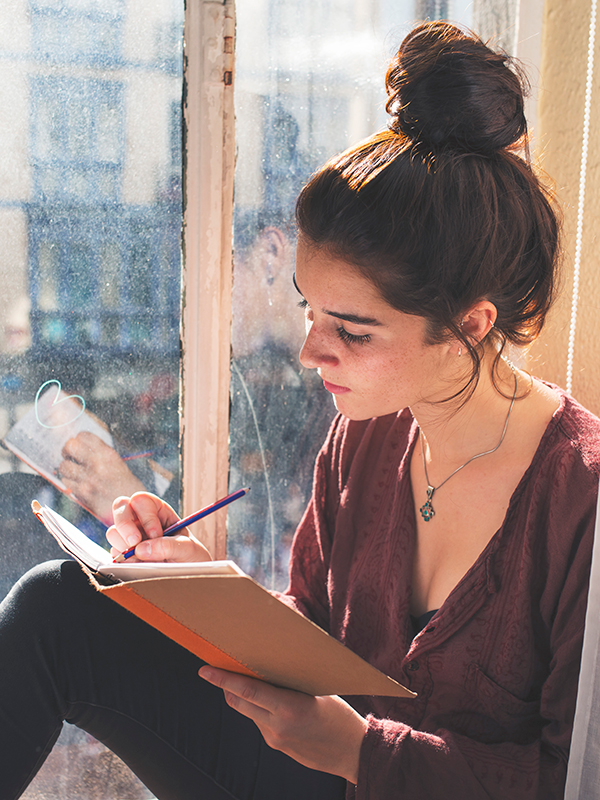
Because our minds are constantly overrun with passing thoughts, it can be hard to separate truths from half-baked feelings. But just writing stuff down is an incredibly effective way to filter through the chaos. "It's similar to proofreading a paper you've written from a hard copy," explains Silvestri. "Seeing your thoughts distilled in front of you on the written page affords a more accurate perspective on what otherwise is just swirling around your mind." Oftentimes, I don't even realize what's bugging me until I see it written in front of me.
And by focusing on your thoughts in the present moment, you are, by default, practicing mindfulness. "It enhances your ability to be in the present moment because it cues you to attend to your mental process in real time," says Silvestri. In time, this can become a powerful tool for quelling anxiety. "By journaling as a regular practice, you can develop the ability to channel and direct your otherwise anxious or intrusive thoughts," she says.
2. It's invaluable if you often feel like your emotions are running the show.
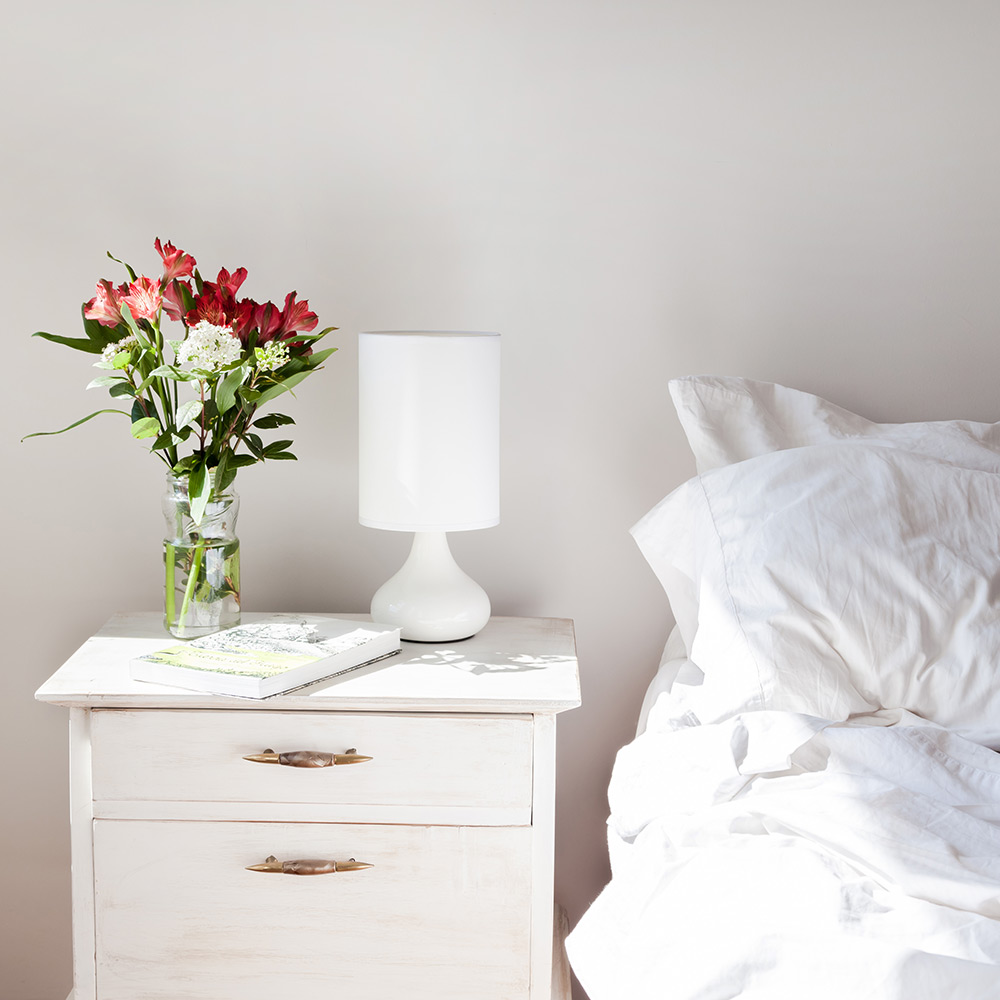
That's not to say that experiencing emotions is bad at all—in fact, suppressing natural feeling might just stress you out even more. But by parsing through your thoughts, you can better understand why you're feeling that way, as well as the circumstances that triggered those emotions, which makes it easier to process and move on. I'm a highly sensitive person, so learning my emotions weren't the enemy was a watershed moment for me. Now I can truly appreciate the catharsis of working with them rather than fighting them. Writing everything down has been essential on this particular road to self-acceptance.
"Journaling confers a sense of agency over your thoughts and feelings," explains Silvestri. "It can also enhance your understanding as to why a particular issue is troubling you and help you sort out a conflict or dilemma. So the process of journaling is useful as a mental exercise of agency and the content of what you journal provides psychological information. It's like a psychic Polaroid snapshot of your mind in real time."
3. The best news: There's no "wrong" way to do it.

This is a highly personal activity, so only you can know the most effective way of going about it—and it'll likely take a little practice to figure out what that means for you. For example, I quickly learned that forcing myself to journal on a daily basis was only stressing me out. Now I write only when I feel compelled to write, and it's all the catharsis I need—whether that manifests as poetry, creative writing, or just a free-rein thought dump. I choose whatever I know will serve me in that moment. (And yes, there are times that I go for days—or even weeks—without opening up my notebook.)
"Journaling can be free rein, channeling whatever stream of consciousness presents itself, or directed, as when someone is trying to deepen his or her understanding of a particular issue or conflict," adds Silvestri. "It can be brief or lengthy, typed or handwritten. The only instance in which journaling can be less productive is when someone shifts into a performative mode, writing falsely to impress some imaginary audience, often one's therapist. But even in that instance, it's providing information."
4. Reading through past journals can be incredibly enlightening.
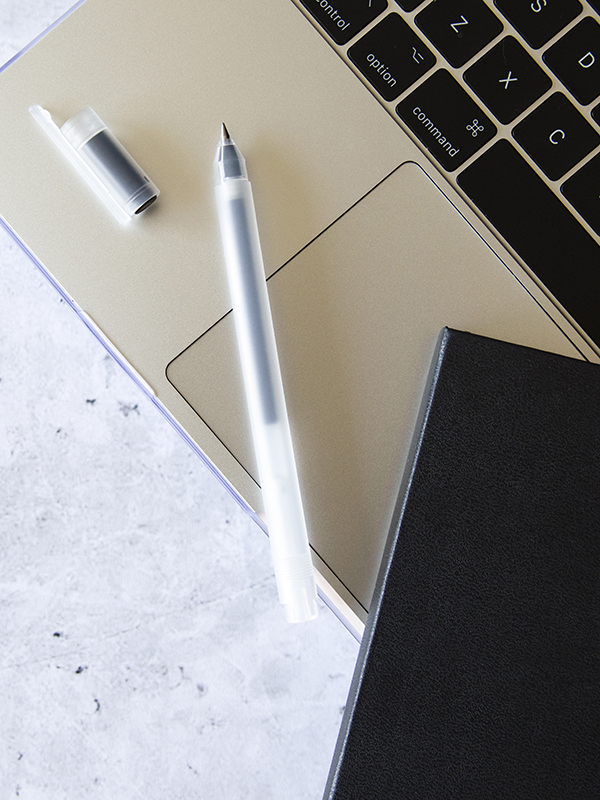
It's pretty cool to have documentation of your own personal journey, not to mention the fact that it's basically your roadmap to negotiating inner conflict. "You really get a deep and rich sense of your psychological process over time," says Silvestri.
It's also a more nuanced version of her proofreading analogy: Each time I read through my old entries, I have evolved as a person and can thus offer fresh perspectives on my old experiences. This means that there are new lessons to be learned each time I do this, especially as I become increasingly aware of certain patterns in my own behavior and thought processes.
5. Getting started is pretty simple, even if you don't know where to begin.

Step one: Buy a journal. "This confers a sense of dedication to the process and helps to make it part of a regular routine," explains Silvestri. Beyond that, you might start by setting a designated time to journal each day (or week) and observe (without judgment) whether that works for your thought process. "Some people find it helpful to commit to writing at a particular time each day, but other people prefer to bring their journals with them and write whenever it feels useful," she says. "The best way to start journaling is to view it as an active choice that you can exercise at any moment and one which you deserve to engage in."
Journals We Love
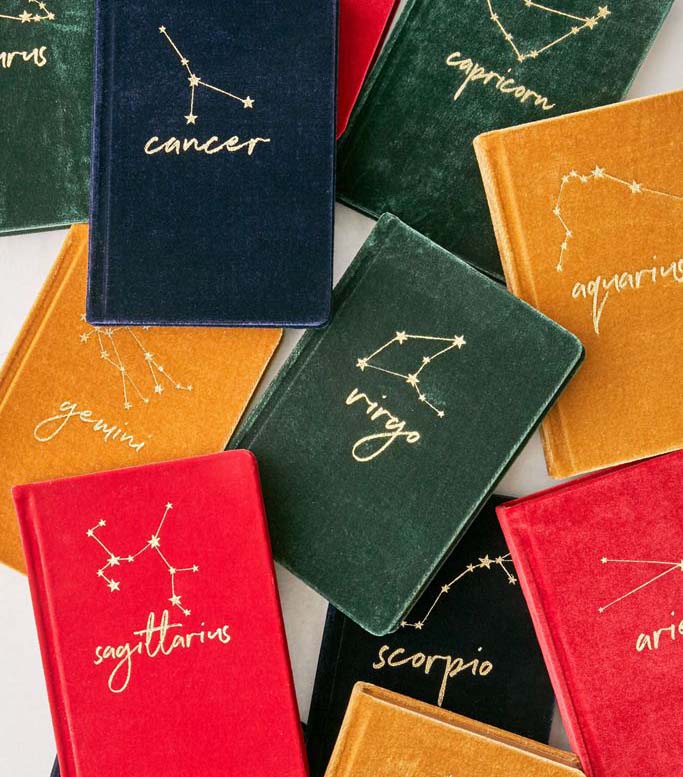
Next up: "Me" Time Is the Best Thing You Can Do for Yourself—Here's How to Prioritize It
This article was originally published at an earlier date and has since been updated.
This article is provided for informational purposes only and is not intended to be used in the place of advice of your physician or other medical professionals. You should always consult with your doctor or healthcare provider first with any health-related questions.
